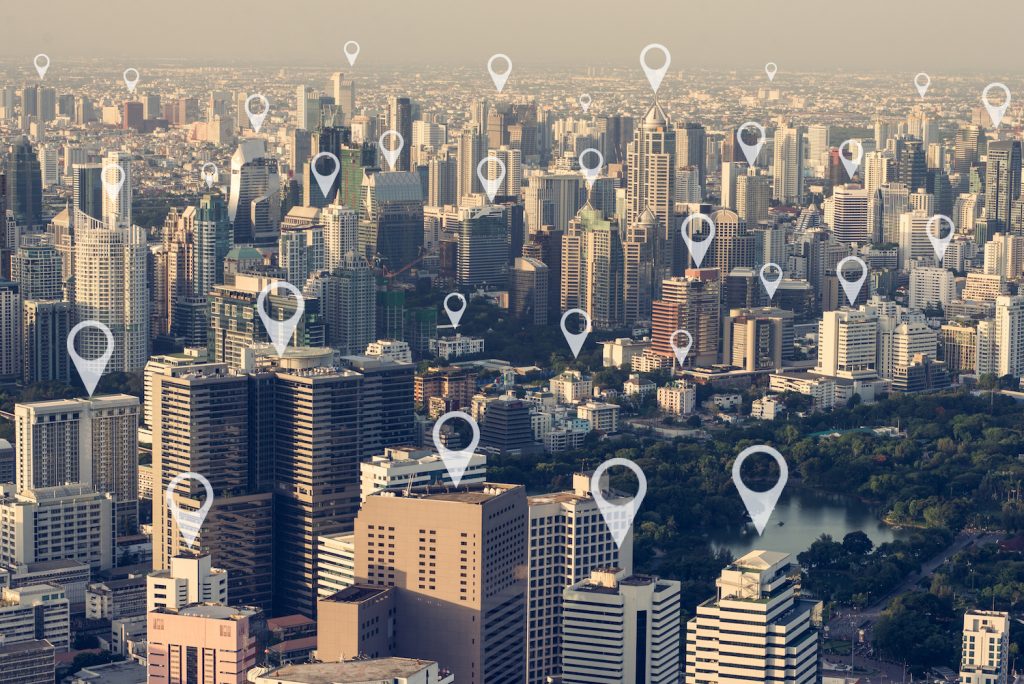In a nutshell: It pays to be picky when choosing space for your business. The right decision can help sales, attract employees and simplify shipping.
Small business owners have a lot to worry about before they open their doors for the first time: There is funding to secure, employees to hire and equipment to buy. There’s another consideration that can’t be ignored, and that’s location. Your address can influence your ability to attract customers, provide service and hire the best workers.
This is certainly true for brick-and-mortar stores and restaurants, but the old maxim — location, location, location — also applies to offices and industrial businesses.
Chew on this:
- If customers have a hard time finding your store or restaurant, they’ll opt for a competitor (or maybe look for solutions online).
- Industrial businesses benefit from being near major transportation routes, especially for making and receiving deliveries.
- Employees might get frustrated if they have long commutes, can’t find parking or don’t have public transportation options.
Finding the right location isn’t magic. And it shouldn’t be left to luck. Here’s what to look for before you sign a lease or make a down payment. (And, in case you missed it, here’s our story about whether to lease or buy your real estate.)
Retail and Restaurants
Once you know what type of customers you want to reach, perform some demographic research to find out where those people live and work. Don’t just look for the least expensive space. If your target market is millennials, think twice before choosing a location that’s surrounded by baby boomers. Likewise, if you’re offering a family dining experience, look for areas with lots of children, not young singles or retirees.
A real estate agent should be able to help you with research, and you might want to think about hiring a consultant if your needs are tricky. There are many free resources available: The Small Business Administration is a good place to start, and has a helpful list of links to other government resources.
Determining how much space you’ll require for your store or restaurant can be difficult. The Balance, a website for entrepreneurs, says a good rule of thumb for retailers is to divide your expected sales volume by the sales per square foot. The result is the amount of selling space you need. This number should be seen as a very rough guide — every business is different, and the formula doesn’t account for storage and office needs.
Office
The lowest-priced office space might not be the best choice for your company. One important thing to think about is the image you want to impart with your office space. You certainly want to make a good impression on clients and customers. Accordingly, a professional services firm such as a law office might seem out of place in an industrial park. At the same time, you don’t want to seem wasteful or extravagant — a scrappy startup in an expensive office tower might not appear to be spending its money wisely.
Small business owners must also consider whether they want to be in the middle of a metropolitan area, on the outskirts or somewhere in between. A centralized location puts you in reach of many potential employees, customers and clients. However, office rates may be more attractive in less dense and more remote areas.
Look for office spaces with good transportation options. Employees, customers and clients might prefer to use public transportation, especially in big cities. Others might be driving, so it should be easy to locate the office and find parking.
How big should the office be? That’s very hard to calculate, as every business has different needs. Real estate research firm CoreNetsays that, on average, North American businesses had 151 square feet per worker in 2017 — and that number is shrinking.
Industrial
Business owners should look for industrial space that’s close to customers and suppliers. That could ease transportation challenges and cut down on shipping costs. There’s no question that easy access to major roadways is a requirement, but some businesses might also need to be close to rail transportation, seaports and airports.
There are many factors that go into determining how much industrial space to rent or lease. Some questions to ask:
- How much space will be allocated to warehousing, production and offices?
- How many items will be in inventory?
- How can you configure the space most efficiently?
- How much room do you need to operate machinery and stage products for delivery?
Small businesses that expect to grow might want to lease or buy more space than they currently need — provided, of course, they can afford to do so. That way they will not need to move when more space is required.






